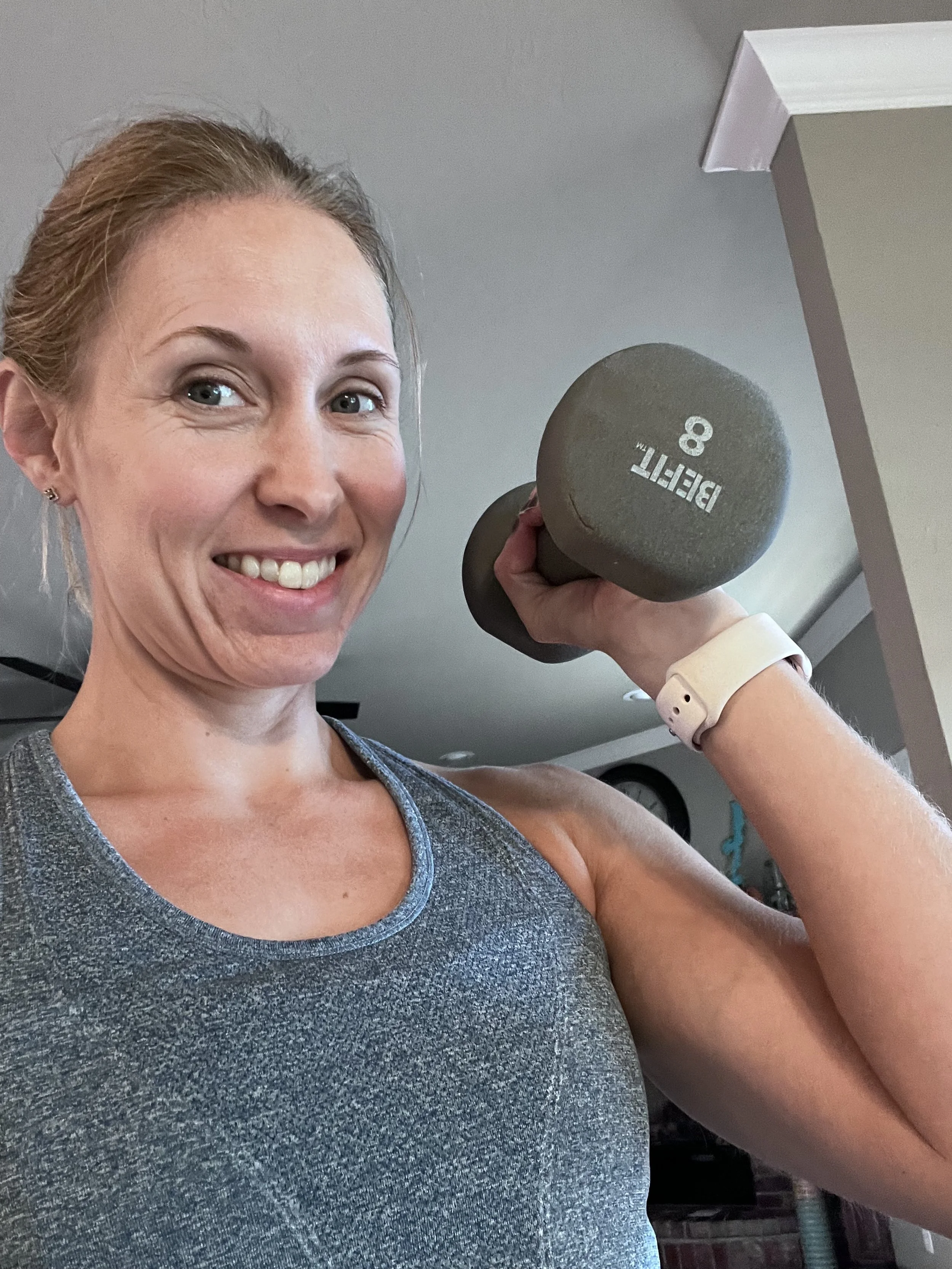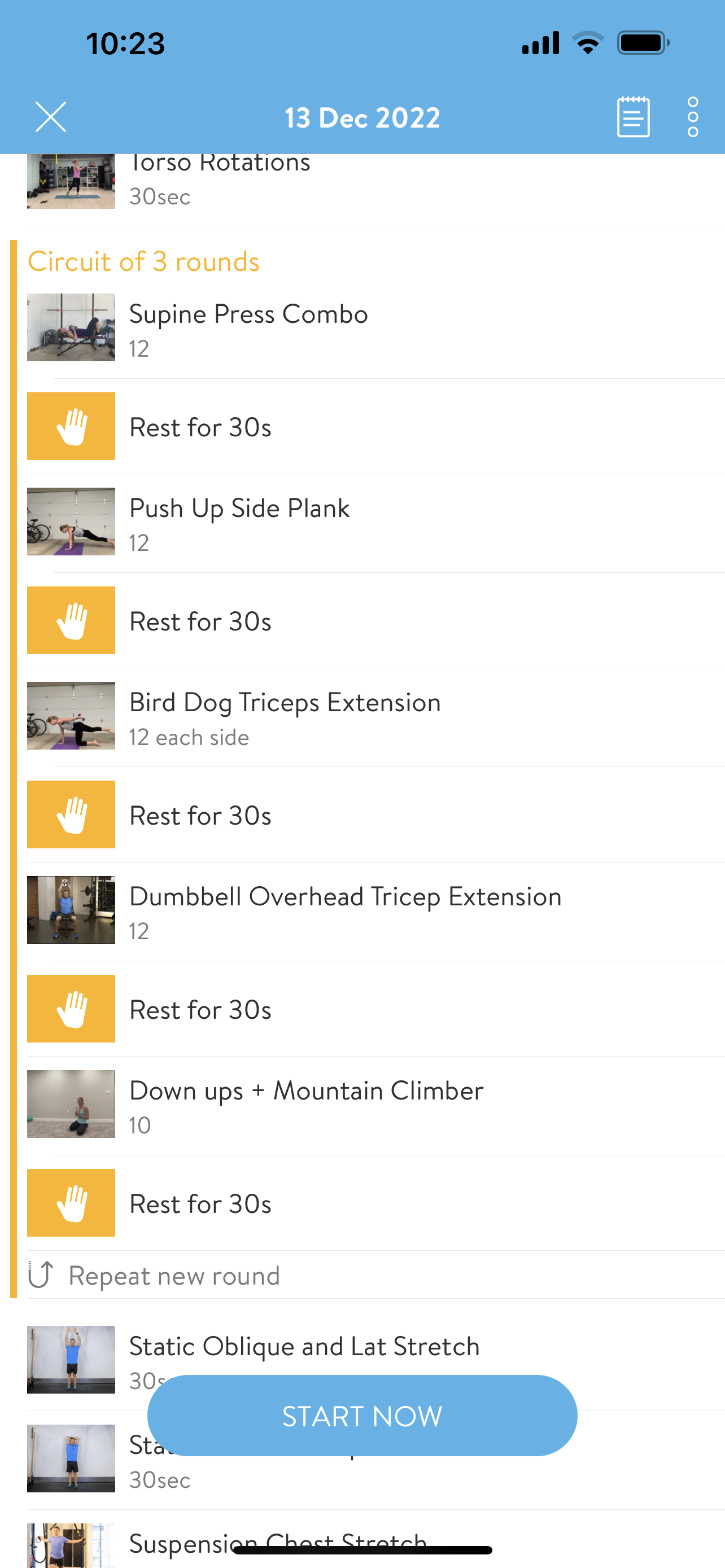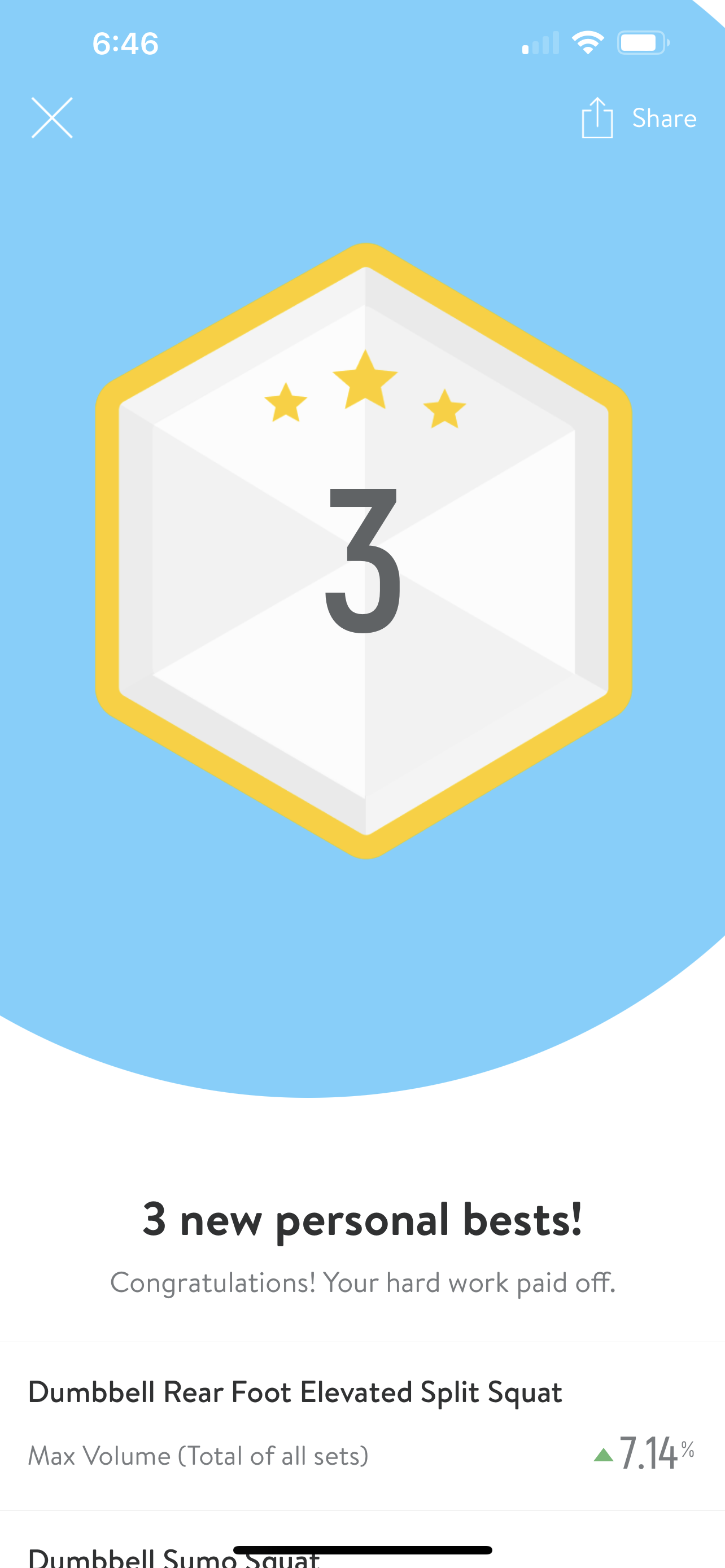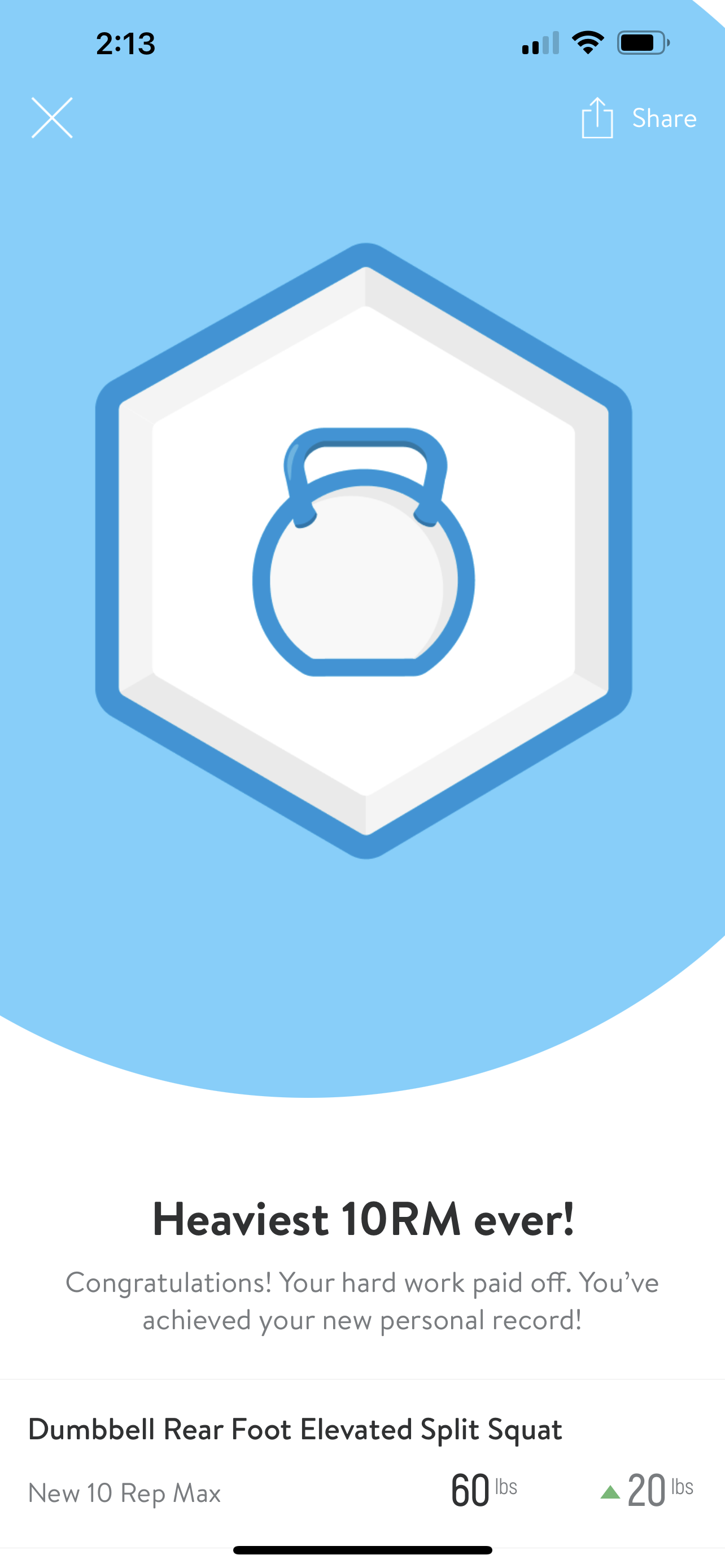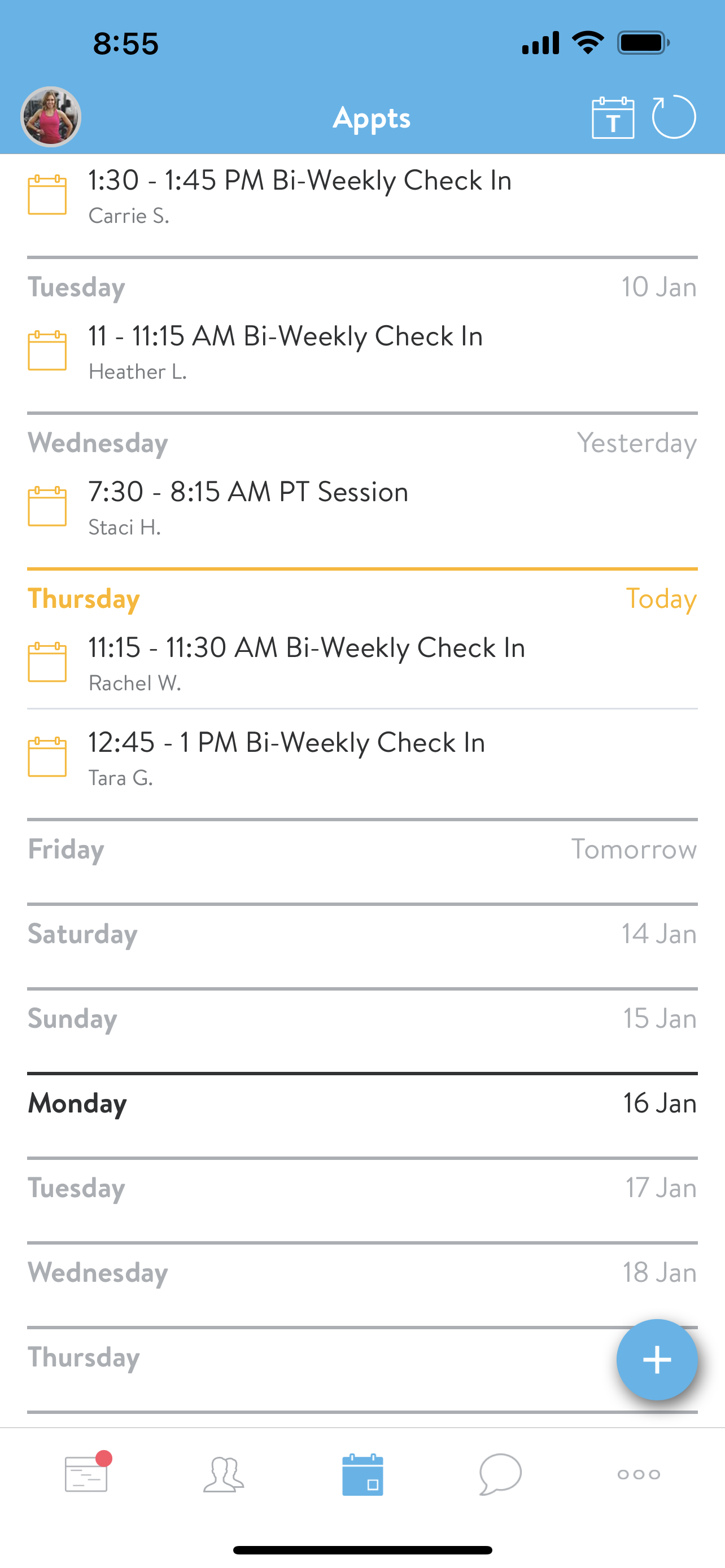Is It Worth It? Online Personal Training... And Does It Work?
Is an online trainer worth it? And how does it really work?
Online trainers can work in many different ways so the answer depends on the training style and what you need to be successful! This post will help you learn about different online training options and you’ll be able to determine if there’s one out there that’s worth it for you!
I’m using my 14+ years of experience in the fitness industry and sharing the most common options and who benefits most (and least!) for each type.
Remember, the phrase “worth it” factors in the money (energy) you spend and the results you get. We are looking for benefits that equal our outweigh the “cost”. There’s no right way for everyone, or even anyone all the time. Let’s dive into the first type of online personal training you may encounter in your search:
Outcome-Based / Self-coached Programs
Some online personal trainers make a standard program designed for a specific outcome (abs of steel, total body strength, prenatal fitness etc) and anyone willing to pay can purchase the program. The programs usually are delivered via PDF download with video links for demonstrations and an exclusive Facebook group. You’ve likely seen ads in your newsfeed from trainers offering these types of programs. In many cases you can do the workouts at home or at a gym which is a great flexibility feature!
Who it’s best for:
Experienced exercisers! These programs rely heavily on user accuracy and competency. These programs are usually very affordable, quality options that lead to results when followed. For people who workout on a smaller budget and are motivated and disciplined and comfortable adjusting a workout to their level, these programs are usually well worth it! If you’re looking for a core focused total body program- checkout mine below!
Who it’s not great for:
In my opinion- beginners or new exercisers of limited if any individualized attention the trainer. Modifications are usually offered in the programs but not individual support. It can also be difficult to start and stick to without seeing quick progress. Many beginners benefit from personal attention because it is helpful for learning appropriate modifications, and finding levels of intensity and reassurance all is going well.
1:1 Online Training Sessions
Just like a live in person personal training session, many trainers also offer live virtual 1:1 sessions. Sometimes these are also offered as small groups or classes with a live video component.
Who it’s best for:
Beginners and people needing a lot of modifications due to previous or current injuries or conditions. Also beneficial for those with lower body-awareness, meaning they are concerned or have a hard time knowing if they’re doing it “right”. Having a live trainer watching your form and offering real-time cues and feedback is essential to staying safe and working out at the right intensity. This option is also great for people needing a scheduled session to make sure they workout. Life is busy but when you’ve paid for a session, you’re likely to show up!
Who it’s not great for:
It’s not great for people needing flexibility in their schedule because most trainers have limited time slots available and prefer a consistent time schedule. This is the most expensive type of personal training so it probably doesn’t work for small fitness budgets. This is also not great for individuals who workout at a gym because you likely need a private or quiet space and some gyms may have policies against non-affiliated trainers training “in” their facility.
Hybrid Online Personal Training
This is the style I use most frequently so I am excited to share this lesser-known option. The hybrid online online personal training involves a pre-designed outcome-specific workout program with group or personal feedback and support..
Within this option, there are varying methods of “delivering” workouts. Some trainers use a website to host full-length follow along workouts, or clients may receive their workouts in a downloadable PDFs with links to video demos. If a trainer uses these methods, there is usually a private Facebook group for community support and varying levels of contact with the trainer.
Others use an app that hosts both full length video workouts or demos videos but data tracking for weights, sets and reps. In my case I use an app that allows my my clients to track their stats, receive individual feedback from me and engage in a group for extra support.
Who it’s best for:
Clients that do the best with this style have some exercise experience and are comfortable working out on their own. Their goals match the expected program outcomes, and they are involved and responsive to the feedback and check-ins with their trainer. It’s best for people who want a personalized experience and some level of accountability without needing a custom program or the 1:1 sessions time commitment and budget. This option is also great for people who want to workout at both a gym and at home or one or the other!
Who it’s not great for:
This does not work well for individuals who need face to face accountability and support or those who struggle with making workouts a priority since there is not set time of day the workout has to be done. It’s not a good fit for people wishy-washy on your goals and commitment to doing the work.
Below is a sample of what inside my app looks like:
Custom Online training Program
This is another popular (and favorite ) method of online training that usually involves more than just workouts. Custom programs usually include some level of lifestyle coaching- from habits to nutrition and mindset for a truly personalized experience. In my experience custom programs involve weekly 1:1 live sessions that may either be a workout, or a conversation to review progress, troubleshoot challenges and plan for next steps.
Who it’s best for:
Individuals who are willing and able to commit to a full up lifestyle change or are working with ongoing changes issues related to their health or fitness routine- a standard program doesn't usually adjust well to multiple variables- and knowing what and how to adjust is best with the help of a professional. To get the most out of a custom program, a client must fully trust the trainer, their process and be willing to do what they say. Because the investment (time, energy and money) is the greatest with this type of program, the results are usually the best- in terms of exactly what you want.
Who it’s not great for:
Custom programs are not for anyone with the money to pay for them because of their comprehensive nature. Custom programs require commitment on both sides- client and trainer - and sometimes our availability and ability to commit and follow through is not aligned with the expectations of a custom program. A good trainer will recognize when a custom program is not appropriate and recommend another option.
So back to our original questions- does online training work and is it worth it? The long and short of it is yes, online training works when you pick the right type for you, your goals and your availability! And in my opinion, if it’s working, it’s worth it!
If you read this and are interested in trying online training or still have questions, let’s chat! I can help you figure out which type is best and how to get started. Happy training!
XoXo Heather



